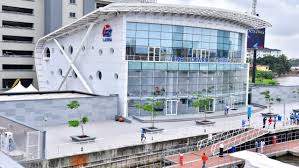The Lagos State Waterways Authority (LASWA) has held a strategic meeting with key stakeholders to drive the adoption of Compressed Natural Gas (CNG)-powered boats and other clean energy solutions in Lagos’ inland water transport sector. The engagement, which took place at LASWA’s headquarters in Ikoyi, Lagos, brought together the Presidential Initiative on CNG, RIL Hydro Kraft Limited, boat operators, and relevant stakeholders to discuss sustainable energy alternatives for marine transportation.
In a statement released on Wednesday, LASWA described the meeting as a significant milestone in its efforts to align local water transport operations with national clean energy policies. The session was aimed at integrating Nigeria’s broader energy transition agenda into the realities of boat operations in Lagos while exploring the practicalities of introducing CNG-powered boats and electric ferries.
The General Manager of LASWA, Mr. Oluwadamilola Emmanuel, who welcomed participants, underscored the importance of energy transition in the state’s transport strategy. Emmanuel said that incorporating cleaner energy sources like CNG and electric ferries into Lagos waterways would reduce carbon emissions, enhance safety standards, and lower operational costs for operators.
“Energy transition is at the heart of our future mobility plans. By adopting CNG-powered boats and electric ferries, we are not just improving passenger safety and operational efficiency but also contributing to environmental sustainability,” Emmanuel said.
He noted that the waterways are critical to solving Lagos’ mobility challenges and that a shift towards sustainable energy will position the state as a leader in green transportation in Nigeria and West Africa.
The meeting featured a comprehensive presentation from the Programme Coordinator and Chief Executive Officer of the Presidential CNG Initiative, Mr. Michael Oluwagbemi. He outlined the Federal Government’s roadmap for promoting CNG adoption across Nigeria’s transport sectors, including road and marine transport.
Oluwagbemi shared success stories from the adoption of CNG in road transportation, noting that similar strategies could be replicated for marine transport. He assured stakeholders that the Federal Government was ready to provide technical support, create enabling policies, and facilitate partnerships to ensure the effective transition to CNG in water transport.
“We are committed to supporting the marine sector’s transition to cleaner energy. Our goal is to replicate the success we’ve seen on Nigerian roads with CNG in the water transport sector, ensuring that operators can access the necessary technical support and incentives,” Oluwagbemi said.
The Chief Executive Officer of RIL Hydro Kraft Limited, Mr. Layi Solesi, provided a detailed technical presentation on the process of converting existing boats to run on CNG, the required fuelling infrastructure, safety standards, and the long-term economic advantages of adopting CNG in marine operations.
Solesi cited examples from other coastal cities where CNG-powered marine vessels have been successfully deployed, leading to lower emissions, reduced fuel costs, and enhanced safety. He expressed his company’s readiness to collaborate with LASWA and boat operators to initiate pilot projects that could demonstrate the viability of CNG boats on Lagos waterways.
However, boat operators raised several concerns during the engagement. They questioned the affordability of converting existing boats to CNG, the safety of the technology, the compatibility of CNG with current engine designs, and the availability of fuelling infrastructure.
They also highlighted maintenance issues that could arise from transitioning to a new fuel system and called for comprehensive support from the government and private sector to address these concerns.
Responding to these concerns, the Presidential CNG team and RIL Hydro Kraft Limited assured operators that the adoption of CNG would be implemented gradually and inclusively. They promised that capacity-building programmes, extensive stakeholder consultations, and safety training would be integral parts of the rollout plan.
The stakeholders also emphasized that converting to CNG would not be mandatory at the initial stage but would be driven by demonstrable economic and environmental benefits that would encourage voluntary participation by operators.
LASWA, in its statement, reaffirmed its commitment to remaining a proactive regulator and facilitator in the state’s efforts to build a safer, greener, and more efficient water transport system.
“The outcome of this landmark meeting reinforces our role in shaping policies and fostering collaboration towards achieving a sustainable future for Lagos waterways,” the statement said.
The collaboration is expected to continue with further technical assessments, pilot programmes, and consultations with operators and other critical stakeholders. If successful, Lagos could become the first Nigerian state to fully integrate CNG-powered boats and electric ferries into its water transport system, setting an example for other coastal states.
